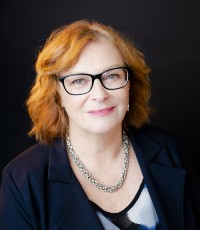By Jane Wrightson, Retirement Commissioner
A lot of what we thought was safe has been shattered by COVID-19 – our immunity, our job security, and our financial resilience.
 It turns out our personal finances were more brittle than we thought, with the whirlwind effects of the pandemic leaving us exposed to debt, with inadequate savings and a lack of understanding of why our KiwiSaver fund was fluctuating or what to do about it.
It turns out our personal finances were more brittle than we thought, with the whirlwind effects of the pandemic leaving us exposed to debt, with inadequate savings and a lack of understanding of why our KiwiSaver fund was fluctuating or what to do about it.
As we emerge from weeks of lockdown, younger people find themselves further away from home ownership; vulnerable borrowers and most mid-lifers have troublesome debt levels; pre-retirees have seen their financial planning go awry; and retirees, while having a universal basic income in NZ Super, are way more likely to be living off the pension than living it up.
One thing this crisis has given us is the opportunity to rebuild our approach to knowledge. We can study the detritus and put our finances back together in a different, better way, because we’ve all learned something about money, even if it’s what we don’t have.
The same applies to how we teach New Zealanders to be financially capable. Many millions of dollars have been spent over the past 20 years on financial literacy and capability programmes. CFFC’s Sorted is a unique, trusted source of independent information with tools to help New Zealanders plan. Banks, reputable financial service providers and advisors, and non-profit budgeting services provide valuable advice. Informed columnists are easy to find.
Stripped back, all say much the same thing: live within your means, save something each payday, manage debt carefully, beware of scams, understand risk, diversify investments, stay in KiwiSaver to save for a house deposit and, ultimately, for the retirement you deserve.
So why are New Zealanders so bad at this? We can lay blame on many things – education, life crises, low income, cost of living - but many of us can also improve how we manage our affairs, and so put ourselves in a position of more choice later on.
There must be a better way of helping us do that.
Did you know we have a National Strategy for Financial Capability? Neither did I until I started this job four weeks before lockdown. The National Strategy is an incredible collection of over 100 organisations – government, corporate, education and non-profit. All have skills and experience in financial education, all spend heaps of time and money on it, and all in various ways support New Zealanders to be more self-determining with their finances.
But we don’t walk in step. We need to harness our collective energy and apply resources shrewdly so we fit together properly. We need to knit together our various activities to help New Zealanders recover and thrive again.
COVID-19 has taught us our little island nation can pull together when it needs to. Imagine if we harnessed the power of the collective know-how in the National Strategy to teach all New Zealanders how to be good with money, from school-age up. What if we glued that collective into a network that radiated into every sector of society, so that people moved through each life stage, knowing that storms will invariably come, and were as prepared as possible to weather them.
The next few months, maybe years, will be tough for most and learning to plan better with money will help a little. By the time you get to retirement, in whatever form that takes, you want some choice in how you live, and to have confidence that older New Zealanders are properly cared for.
Achieving that needs to be a shared goal: for individuals, government, and non-profits alike. It’s time to make like New Zealand during COVID-19 and work together. The CFFC will reboot the National Strategy in the next few months and I invite public and private sector leaders to help me drive change.
Disruption can be painful, but it can also create the space for positive change. Disruption helps challenge assumptions – laid bare some prove to be not so well-founded after all.
We have a unique opportunity to change how financial know-how is acquired, to ensure everyone moves through life in control of their financial destiny. She won’t be right until we know how to do this well.
